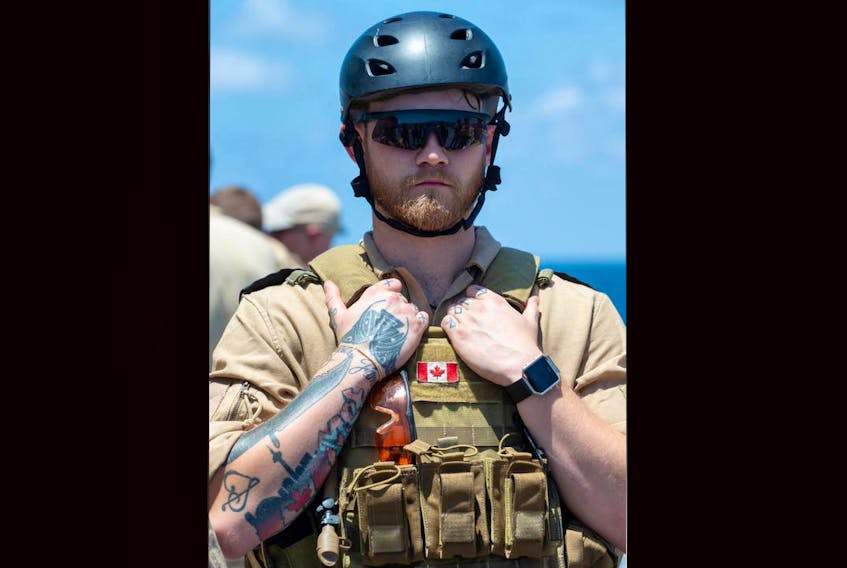The Canadian Armed Forces has inked a new policy on tattoos.
The new directive, released Tuesday, prohibits any tattoos on the face or the scalp and restricts them from displaying any connection with criminal activity, nudity, or promoting or expressing hatred, violence, discrimination, or harassment.
Members of the forces can request special treatment if they have, or intend to have, cultural or religious-based tattoos on the face or scalp. Exceptions will also be made for cosmetic tattoos that are natural-looking in shape and colour.
New recruits going through the enrolment process are subject to the same rules on tattoos as existing members. Any non-compliance with the policy can result in administrative and disciplinary measures.
The subject of tattoos on members of the military gained public notice in June, when a Royal Canadian Navy sailor in Halifax was seen in a Tim Hortons with a tattoo on his lower right arm that spelled infidel in the shape of a rifle.
Someone at the Tim’s took a picture of the ink and posted it to social media, where many called the tattoo offensive and Islamophobic.
The navy later said the sailor had agreed to get something tattooed over the bothersome body art.
On Tuesday, a navy spokesman in Ottawa said there was no connection between the infidel tattoo flap and the new policy. Last year, about 60,000 people applied to join the forces and it’s estimated that 40 or so were turned away because of inappropriate tattoos.

In Halifax, tattoo artist Josh Ehler, who works at Legacy Tattoos and Supplies on Agricola Street, said many of their customers are in the military.
“The owner of the shop is ex-military. We tattoo quite a few veterans in here, we get a lot of boys from the navy as well,” said Ehler, who’s been a tattoo artist for five years. “They do tend to have a theme. There’s quite a few poppies in the pieces, I’ve seen a lot of military scenes, a lot of medals as well. They kind of all fall in the same theme. For the navy we do a lot of anchors and ships and stuff, military related or the veteran’s biker (patch).”
Ehler said his boss wouldn’t like it if someone tried to tell him he couldn’t tattoo his head, but he doesn’t think it will be an issue for their military clientele.
“A lot of our clientele do get pretty heavily tattooed, but I don’t think I’ve seen one yet with anything on their face,” he said. “The skull, I don’t know how they’ll feel about the head because you can grow your hair over, but I know once you’re in the military you do have to cut your hair a certain way, I’m assuming.”
A release from the Canadian Armed Forces said the tattoo policy was updated to reflect the more mainstream acceptance by Canadian society of body art, and expands the eligibility of suitable applicants interested in joining the Forces.
The policy is also designed to respect the rights of others in the Department of National Defence and the Canadian Armed Forces to work in a non-discriminatory and harassment-free environment, the release said.
Chief Warrant Officer Alain Guimond said “tattoos are more and more mainstream in Canada and that’s what this policy update is all about,” he said. “Greater control over your personal appearance is good for the morale of our people and it helps us attract future members to our team.”
RELATED:









